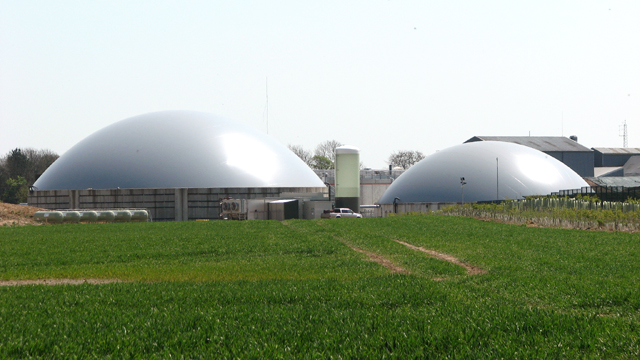
From: https://s0.geograph.org.uk/geophotos/04/93/84/4938429_ff3ac777.jpg
Sulfides are primarily produced through the activity of sulfate-reducing bacteria (SRB). These microorganisms use sulfate as an electron acceptor, generating hydrogen sulfide (H₂S) as a byproduct. While this process is natural, the accumulation of sulfides can have detrimental effects on the anaerobic digestion ecosystem.
Impact on Micronutrients
Micronutrients like iron, cobalt, and nickel are vital for the enzymatic activities of methanogens—the microorganisms responsible for methane production. Sulfides interfere with these micronutrients in several ways:
- Precipitation of Micronutrients: Sulfides react with metals to form insoluble metal sulfides, rendering these essential nutrients unavailable to the microbial community2.
- Toxicity to Microorganisms: High concentrations of hydrogen sulfide can inhibit the activity of methanogens, leading to reduced biogas production.
- Disruption of Microbial Equilibrium The competition between SRB and methanogens for substrates can tilt the balance, favoring sulfide production over methane generation.
Mitigation Strategies
To address the challenges posed by sulfides, several strategies can be employed:
- Chemical Additives: Adding compounds like ferric chloride can precipitate sulfides, reducing their availability for SRB activity.
- Optimizing Feedstock: Adjusting the carbon-to-sulfur ratio in the feedstock can limit sulfate availability, curbing sulfide production.
- Advanced Materials: Incorporating adsorbents like biochar or zero-valent iron can help manage sulfide levels and protect micronutrient availability.
Good Articles for Further Reading
Maillacheruvu, Krishnanand Y., et al. “Sulfide Toxicity in Anaerobic Systems Fed Sulfate and Various Organics.” Water Environment Research, vol. 65, no. 2, 1993, pp. 100–09. JSTOR, http://www.jstor.org/stable/25044274.
Niu, Q., Wu, G. (2024). Sulfur Metabolism and Its Inhibition Alleviation in Anaerobic Digestion Ecosystems. In: Wu, G. (eds) Anaerobic Digestion. Green Energy and Technology. Springer, Cham. https://doi.org/10.1007/978-3-031-69378-6_7
Šafarič, L.; Yekta, S.S.; Svensson, B.H.; Schnürer, A.; Bastviken, D.; Björn, A. Effect of Cobalt, Nickel, and Selenium/Tungsten Deficiency on Mesophilic Anaerobic Digestion of Chemically Defined Soluble Organic Compounds. Microorganisms 2020, 8, 598. https://doi.org/10.3390/microorganisms8040598
